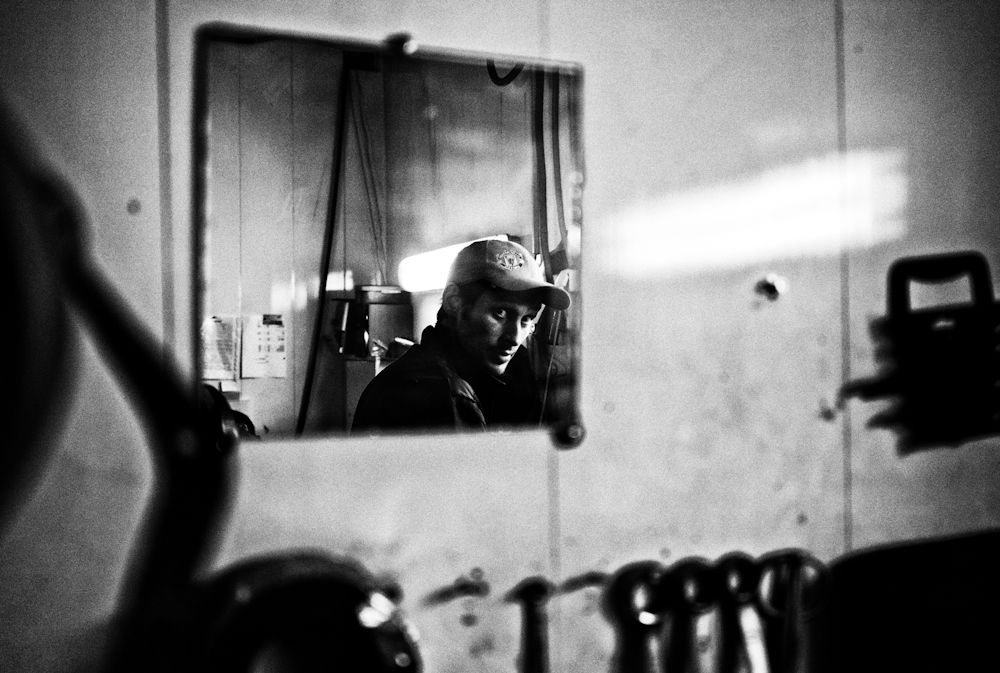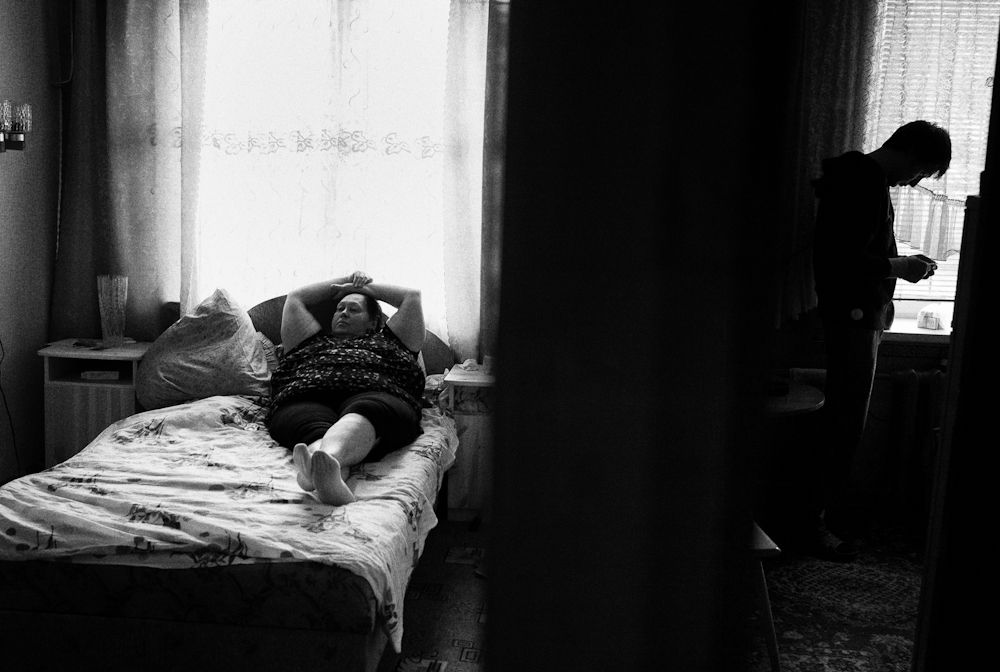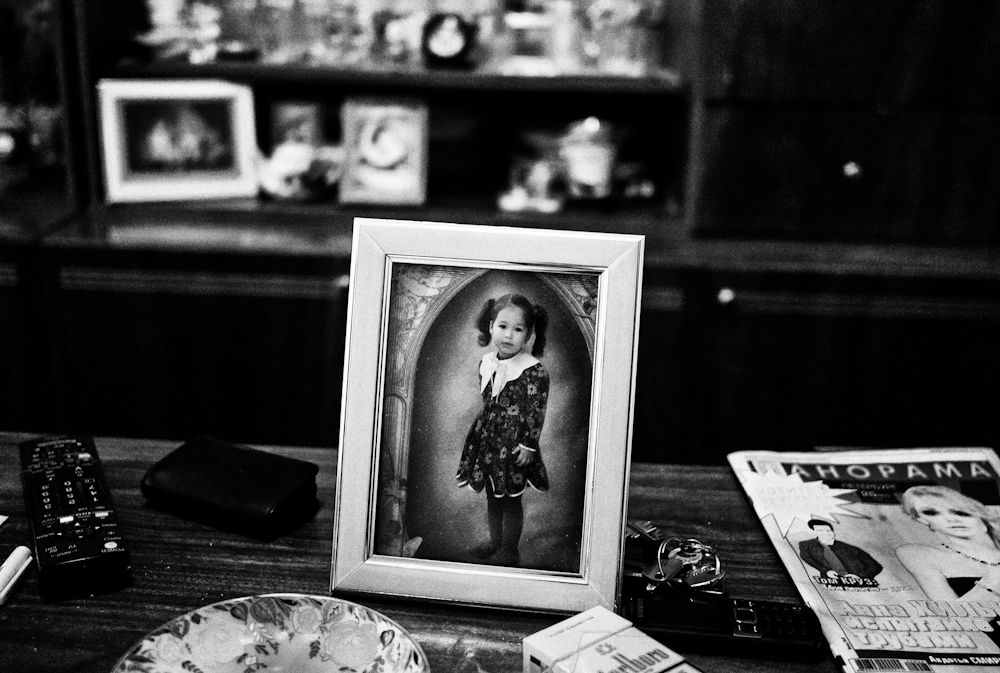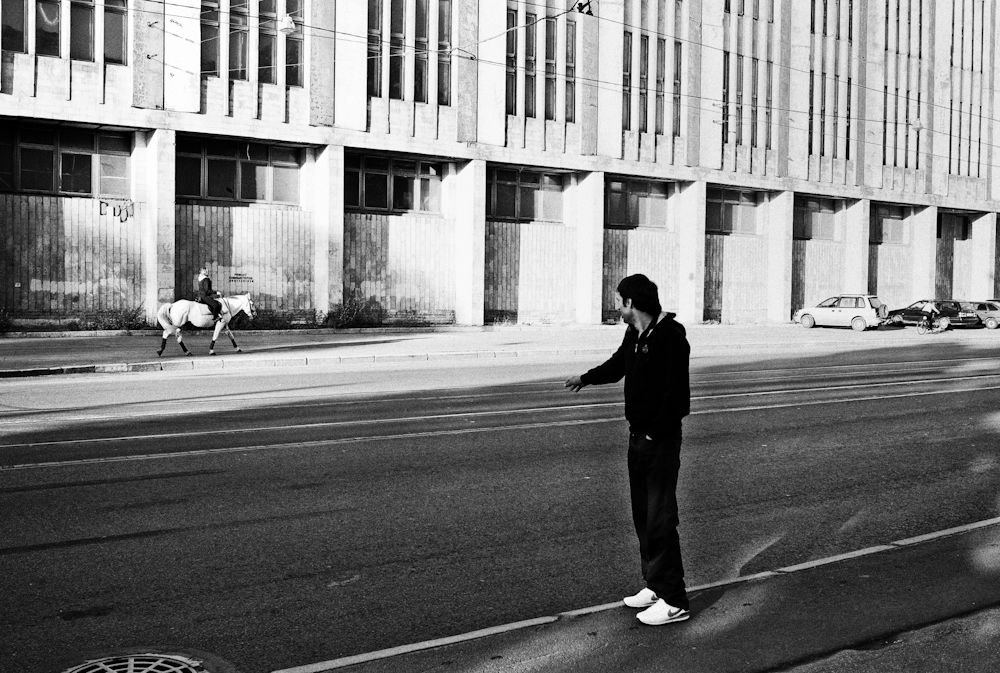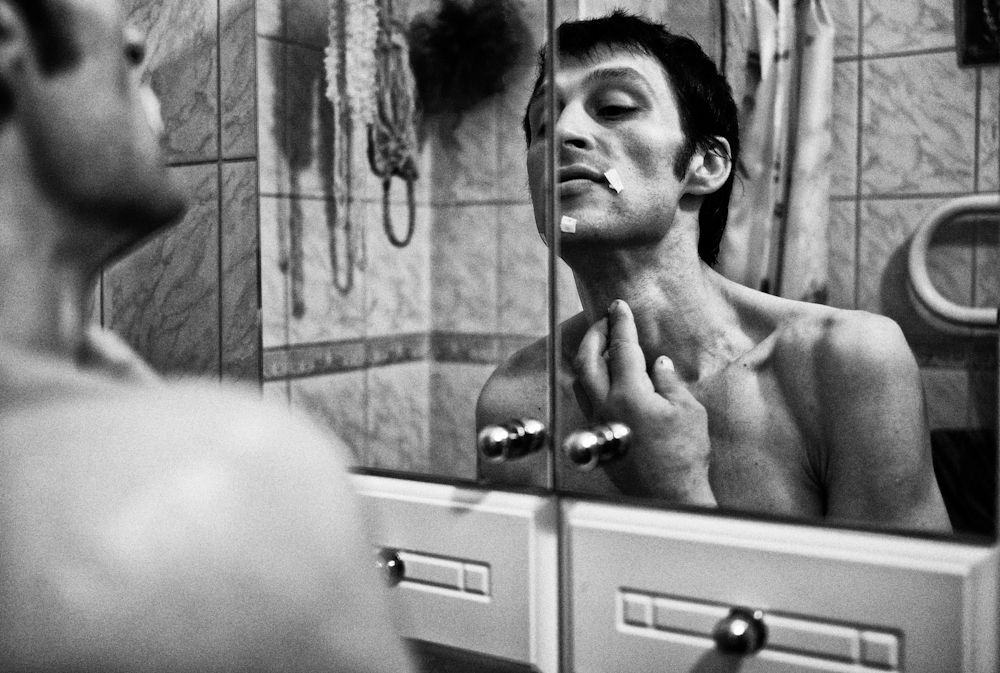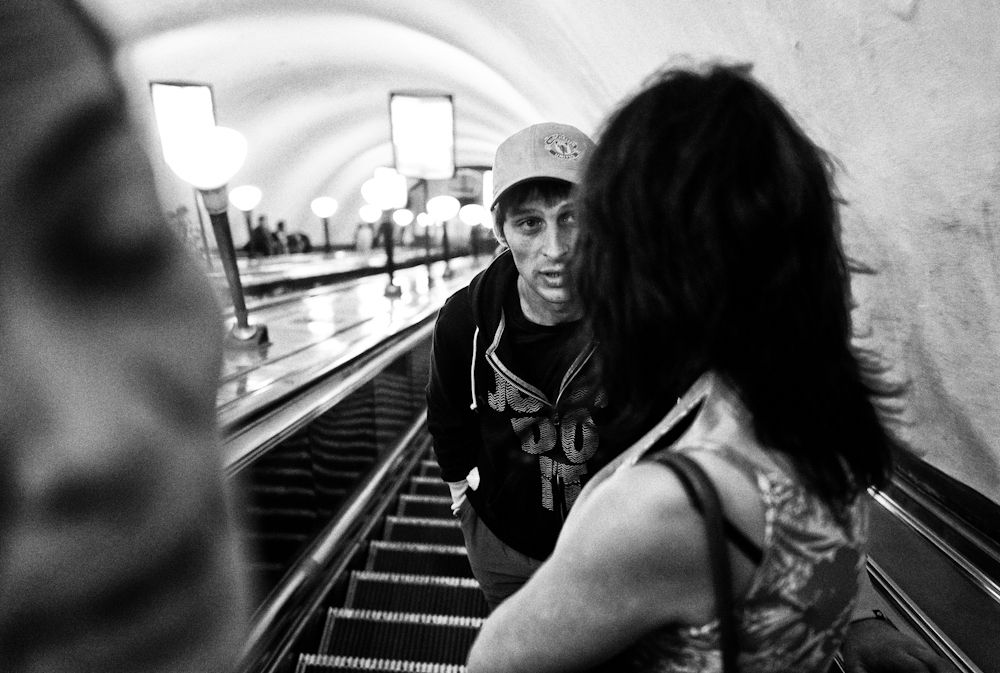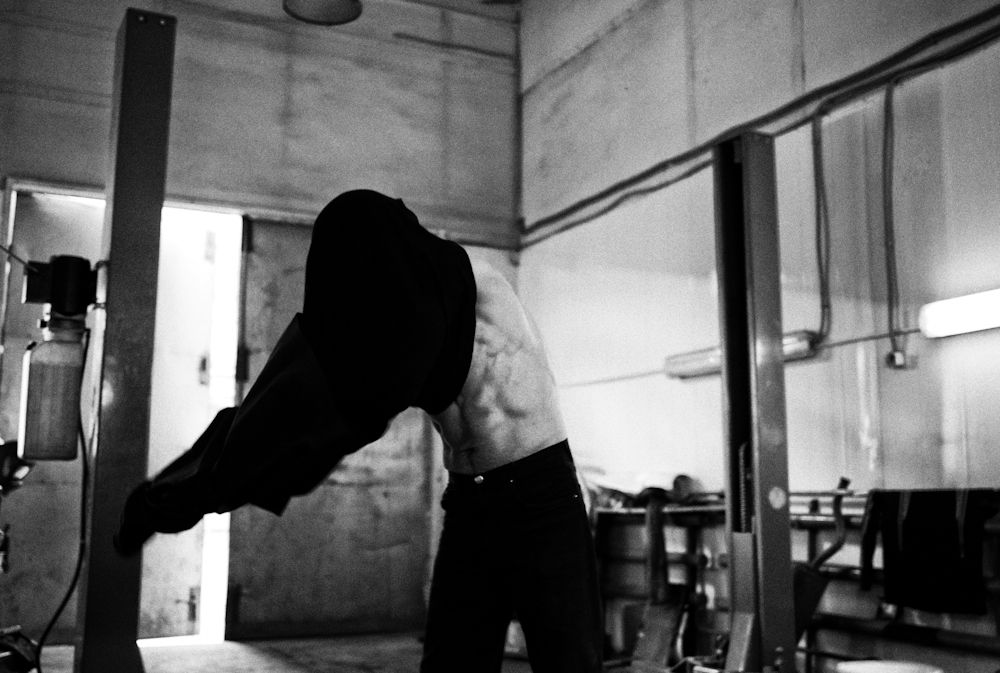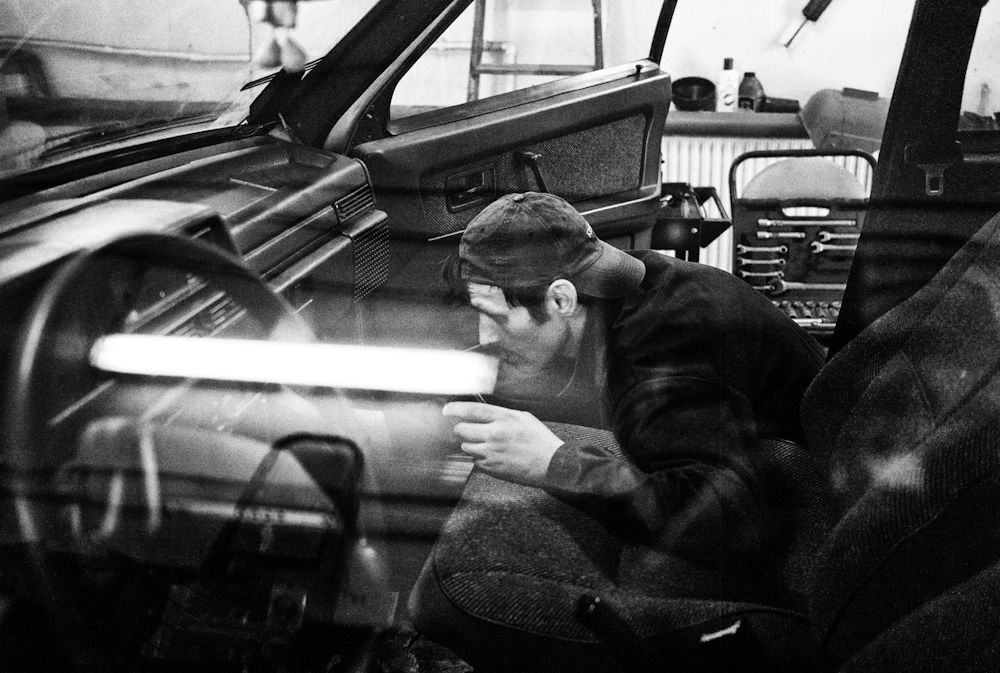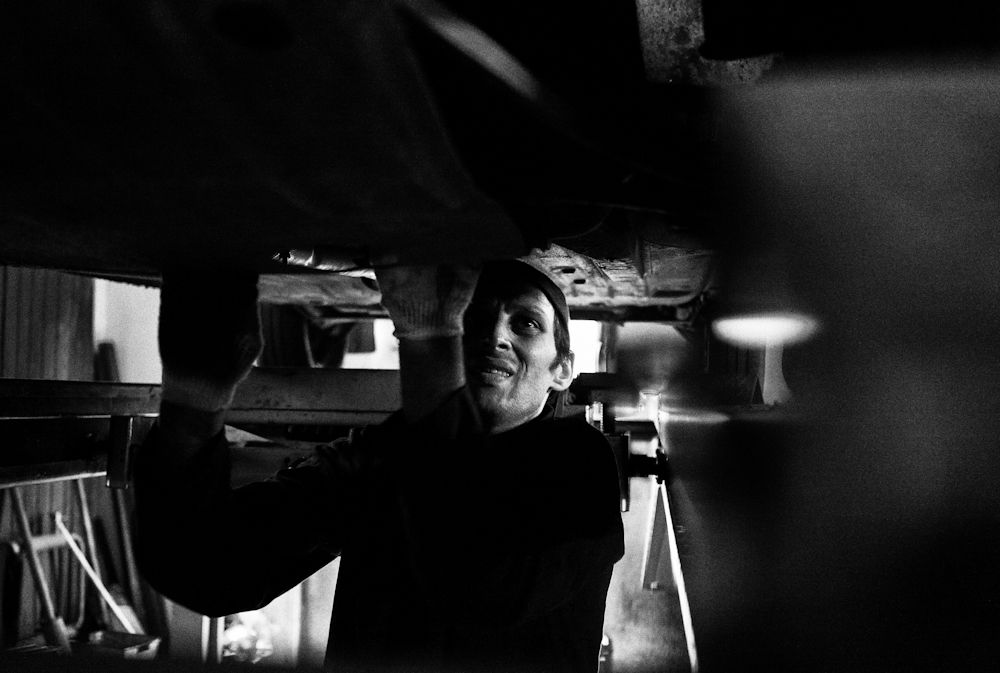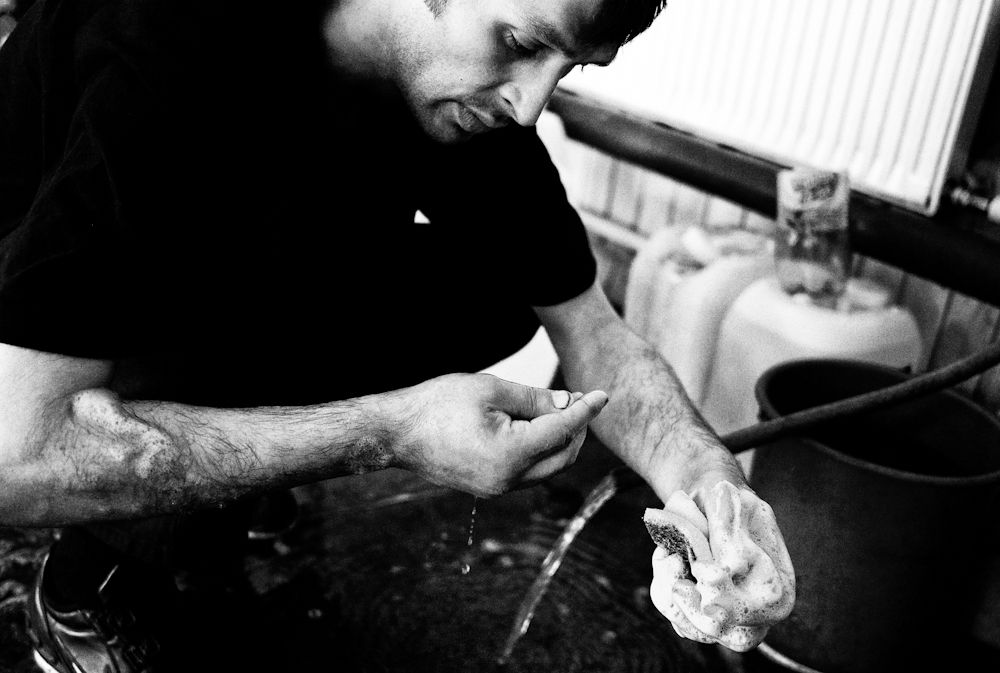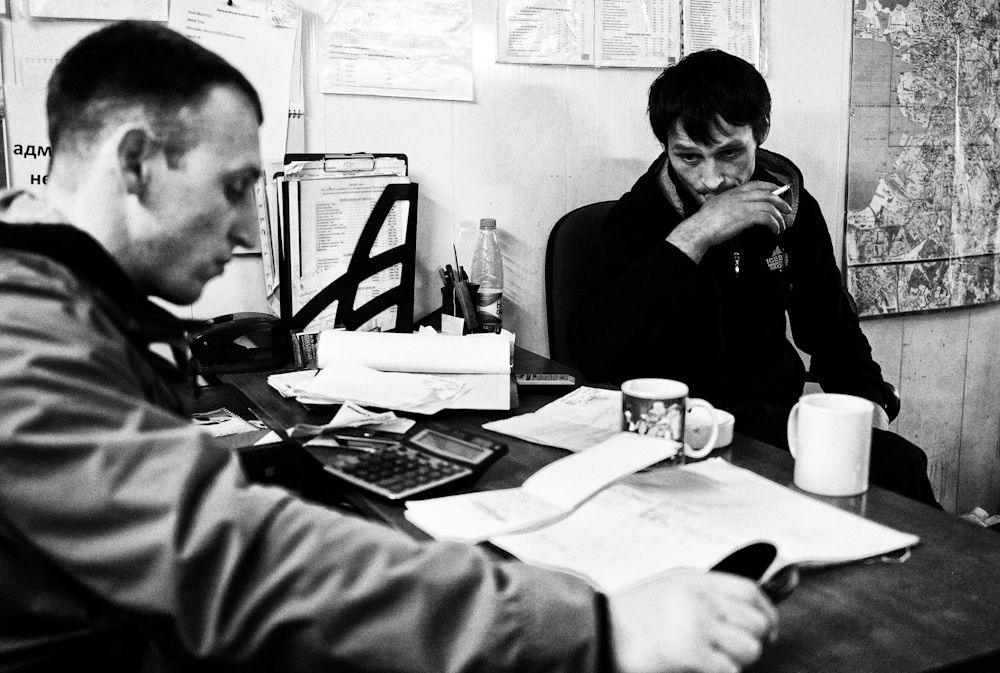In the early 2000s, Russia had more prisoners per capita than the United States. A 34-year-old man from the North Caucasus named Valery was one of them.
The course of Valery's life is not uncommon for men his age. At 15 he started using heroin. He joined a gang. "I was a tough guy," he says.
As the Russian state began to regain strength in the late 1990s, he found himself caught in Russia's equivalent the U.S.'s war on drugs: a war fought primarily by law enforcement. In 2004, in an overcrowded prison near St. Petersburg, he learned he was HIV-positive. Prisons back then were incubators of infectious diseases, including tuberculosis. Valery isn't sure how he became infected.
Released in 2010, he is kept alive by the antiretroviral drugs provided by the government. Valery says he is finally done with using heroin. "I don't have any temptation to go back to that life," Valery says. "I just grew up and realized I needed to have another life."

